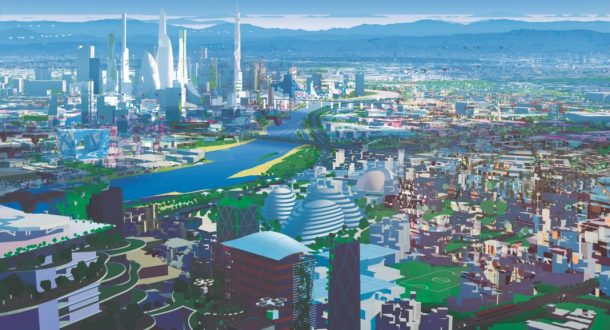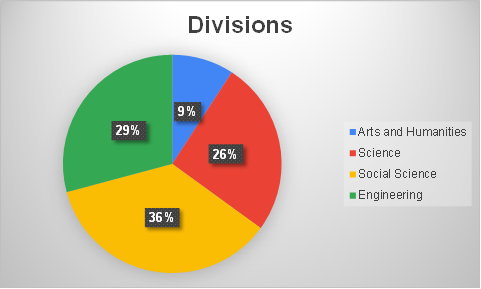
The ASCE@NYUAD student chapter, in collaboration with CITIES and the Department of Municipalities and Transport (DMT), organized the ASCE@NYUAD Future CITIES Competition during Spring 2021. Through this competition, different teams reimagined and prepared cities of the Abu Dhabi Emirate for future changes, and proposed innovative and ingenious solutions to prepare Abu Dhabi to tackle different future scenarios.
Through the ASCE@NYUAD CITIES competition, students were encouraged to actively think about what the future of Abu Dhabi would look like. Through insightful outlines and feedback provided by DMT (Maha AlDhaheri, and her team, including Fatma Lari and Rafaa AlHarthi), students developed different scenarios of building the future of Abu Dhabi.
In coordination with the DMT, the teams described future scenarios that were unique, challenging, and interesting. The future scenario was expressed via different categories of change (Social, Technology, Industry, Resources, Demographics, Energy, Environment, Policies, Religion) to address key elements (for example, how do people live, how do they relate to one another, how do they make money, how do regulations function). The students also explained how DMT will contribute to the selected future (whether to avoid the risk or utilize the opportunities) and help Abu Dhabi be future prepared and/or a pioneer.
NYUAD faculty from different divisions participated during the Faculty Talk Series to give students different perspectives to be considered in their future scenarios. The faculty involved and the titles of their presentations were:
- Dr. Monica Menendez: “Future Cities and Transportation”
- Dr. Philip K. Panicker: “Future Cities and New Concepts of the Waste”
- Dr. Saif Eddin Jabari: “Scale and the City”
- Dr. Borja Garcia de Soto: “Building the Cities of the Future: A View from the Construction Perspective”
- Samuel Mark Anderson & George Jose: “Ethnographic Understanding of the Future Cities”
- Piia Mustamaki: “How Public is the Public Space?”
After each talk, each team submitted their deliverables so that the DMT, CITIES, and the ASCE@NYUAD student chapter could provide feedback.
In the final presentation, the committee has selected 4 winning teams who were rewarded with Amazon gift cards and one of the teams will have the opportunity to translate their idea into pragmatic solutions with a prestigious internship in CITIES during the next academic year.
Statistics about the Competition (Based on Original Registration)
- 120 students registered
- 39 Teams


Below is the summary of the 4 winning teams:
First Place – Team no. 25
Title: Drop The Heat
Students: Hyerim Yong, Priyanshu Mishra, Beniamin Strzelecki, Joseph Hong, Ludien Yen
The temperatures and humidity in Abu Dhabi have risen to the point where it becomes dangerous to simply stay outside. As such, Team no. 25 believed the idea of enclosed door-to-door transit would become vital to navigation within the city and chose to focus on future mobility. In addition to these two factors, there was one more factor that the team considered in the design of their solution–– the possibility of a pandemic. The means of transport available today are unfeasible for Abu Dhabi’s future. Public transport efficiently uses space and energy but requires long waiting and travel times. As it gets hotter, public transport will become even less inviting. On the other hand, private cars move people door-to-door in a cooled environment, but the resulting energy expense is high and the road congestion – unbearable. Their solution thus takes both the efficiency of public transportation and the comfort of private vehicles through a system of pods that can travel autonomously, individual units that can travel together in groups through swarm technology. This is meant to increase the efficiency of traffic flow, decrease accidents, and create an integrated system of transportation within the city. A place where individual pods can move as a whole–– a place where people can hold onto their individual identities yet come together to move forward as one. This is the future of Abu Dhabi that the team envisions.
Second Place – Team no. 21
Title: Decentralized City Managed by Smart Technologies
Students: Aaryan Sharma, Baraa Al Jorf, Aakif Rattu, Ziyad Fawzy, Ivana Drabova
Team no. 21 developed a future scenario in which Abu Dhabi will evolve into a collection of sub-cities managed by smart technologies by 2050. The premise they were working with is that the distribution of the Abu Dhabi population will change due to increased demand for living in the outskirts of the city. They called the process decentralization. The decentralization reflects residents’ preferences for living in open areas with parks and green areas suitable for sports, recreation, community-building, and family life. Living in the sub-units away from the city center will be possible due to less frequent commutes to offices as firms adapt some of their processes to utilize remote work technologies developed during and after the Covid-19 pandemic. At the same time, Abu Dhabi will use smart technologies to increase the efficiency with which the sub-cities manage their waste, energy, transportation, and supply chains, hence making the project economically feasible.
Third Place – Team no. 14
Title: Boiling Point
Students: Jason Cruz, Jennifer Tsai, Ameni Hajji, Yasmeen Abelmoneim, Mawadda Abdan, Marta Pienkosz
Life in Abu Dhabi will reach a boiling point. By 2050 both the city’s temperature and humidity are expected to experience at least a 2.5ºC and a 10% increase respectively. Soon we will only be able to see abandoned skyscrapers against Abu Dhabi’s orange sky. This will affect the lives of the people of Abu Dhabi. During the day, the population will be confined indoors, which will cause the characteristic social activities to slowly disappear. In addition, the economy will suffer from shrinking labor supply and the tourism sector will become unprofitable. Finally, as the frequency of sandstorms and fogs increases, climate change will affect the environment and the city. In response to this scenario, Team no. 14 proposed solutions divided into three phases. Phase 1 concerns the improvement of infrastructure in existing structures. By 2040, the sidewalks would be moved underground, roofs planted with urban greenery, and the asphalt surfaces painted white to reduce the amount of solar energy absorbed and stored. Phase 2 proposes the expansion of an underground parking network and multimodal transport, which would improve urban mobility. The last phase in our proposal, expected to be completed by 2070, is to build floating cities that would reduce the ocean’s absorption of heat.
Third Place – Team no. 18
Title: Roa’yat Zayed / ةیؤر
Students: Gonzalo de la Cruz, Laura Sterling, Anas Ismail Zeid, Giovana Monteiro, Patrick Dowd, Hannah Greene
With the ongoing path of waste accumulation, massive production processes involving non-biodegradable products like plastics and energy coming from fossil-fuels, uninterrupted pollution along with urbanization and climate change, Team 18 envisioned a very negative outlook for Abu Dhabi. In this looming crisis scenario, some of the most pressing and relevant challenges for the UAE would be waste management, rising sea levels due to climate change, and worsening air pollution, to which Abu Dhabi is particularly vulnerable. Roa’yat Zayed consists of an imagined future where DMT intervenes to mitigate the impact of these challenges while adapting to inevitable upcoming circumstances. In a nutshell, the project entails building an interconnected transportation system, with a public system that targets sustainability. The main focus is building an underwater metro system (to aid adaptation to rising sea level threats), powered by waste through Microwave Induced Plasma Gasification – MIPG – (which would push for a circular economy), and incorporating a mangrove forest barrier for carbon sequestration (that will mitigate air pollution).
Team number 14 was awarded by DMT, ASCE, and CITIES with a Research Internship to further develop its solution (Roads / Roofs: Reclaimed) within CITIES during the academic year 2021/2022.
Read about the research project here